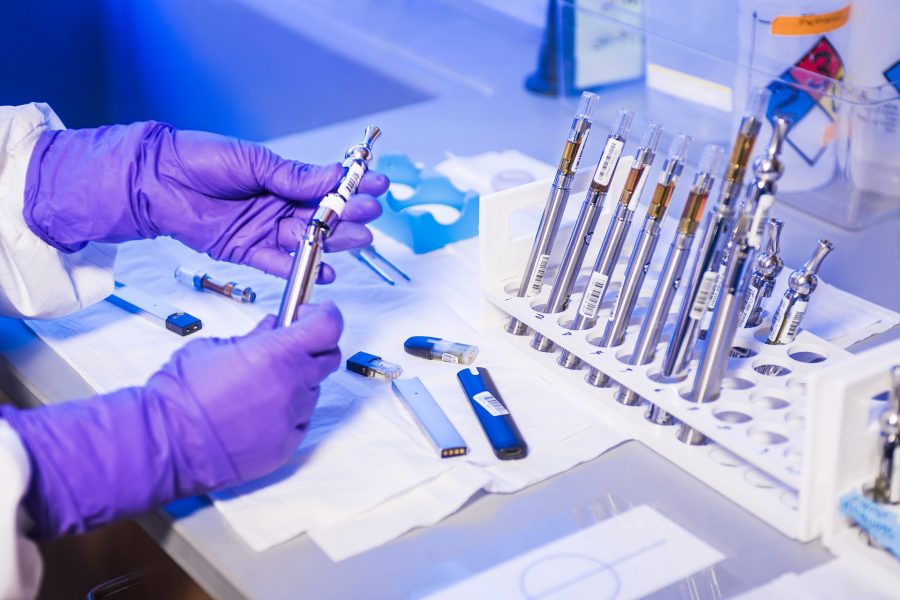Working in a lab comes with a lot of responsibility. Not only do you have to pay attention to the samples you’re using or the people you’re collaborating with, but you also need to take special care of the equipment you’re using. There is hardly anything worse than taking a carefully prepared sample to the instrument you need only to discover that the instrument is broken. Both your time and resources are valuable and you shouldn’t waste them. What you should do is learn how to maintain your equipment properly and here is the guide that’ll help you achieve this!
Read the manual
The first step has to be the most obvious one. Before using any piece of equipment, it is essential for you to read the manual. If you’re using an old piece of equipment, make sure to talk to someone who knows how to use it or try and contact the manufacturer to obtain the manual.
You don’t have to study the manual for days (unless it’s a really complex piece of equipment you’re dealing with). For simpler pieces, briefly reading the manual will suffice and you’ll be able to go for step number 2.
Get trained on it
The next logical thing to do is to get trained on the piece of equipment you need to use. By using the equipment improperly, we damage it. That is exactly why it is essential to learn how to use it as you should.
The best way to do this is to train with experienced personnel. Again, if you’re working with something complex, make sure to spare enough time for the training. If the process takes a lot of steps or if the mistakes could be fatal for your work, don’t underestimate the importance of training!
Clean the equipment after using it
Another very important thing you need to do is clean your equipment after using it. Even though this is an obvious step, it can easily get overlooked. This can lead to some serious issues.
Not cleaning your equipment properly leads to build-up showing up. Some potentially hazardous liquids and powders could clog your instrumentation the next time you try to use it. To avoid this, make sure to follow the manual and clean the instruments in the best possible way.
Inspect the equipment properly
Inspecting your equipment frequently can help you prevent some serious issues. This is particularly important when it comes to equipment that hasn’t been used in a long time. Sometimes, the equipment could be in such a poor condition, that the only thing to do is purchase some new pieces.
When buying new equipment, the most important thing is to look for pieces of the highest quality. For instance, when looking for a high-quality pharmacy fridge, you should look for one that has high and low-temperature alarms, internal light, a door key log, and other features you find useful.
Calibrate the instruments
One thing you definitely want to do in your lab is not making a mistake. The thing that could prevent you from making mistakes is calibrating the instruments often. Pipettes, for instance, should be professionally calibrated every 3 to 6 months.
Besides this, you should monitor their accuracy continually. You can do that by testing them with pure water, a balance, and a weight dish. A good idea is to make some labels and affix them onto instruments. This will further help you record maintenance information.
Refurbish the equipment
When it comes to maintenance, nothing works as good as refurbishing. If you’re skilled enough, this is the right thing to do if you want to preserve your equipment. Before you get to this, you should be sure that you’ll know how to put the instruments together once you’ve finished.
Refurbishing the equipment means taking it apart. You take care of each component on its own. It’s much easier this way to clean and repair the components if necessary. You’ll also get the chance to replace any component if you spot any issue.
Compile a toolkit for repairs
Sometimes, the instruments can be in such a bad condition that you must call professionals for help. On the other hand, sometimes, some minor problems can occur. When the issue is minor and you’re able to solve it, it’s good to already have a toolkit prepared.
For your toolkit, you should purchase a set of wrenches and a set of Allen keys. You’ll also need a screwdriver, some pliers, and a superglue. Duct tape and electrical tape should also be in your toolkit!
Conclusion
Taking care of your equipment can prolong its lifespan and it can also make your life easier. Even if it sounds like a nuisance, you should know that maintaining the equipment improperly can cause you much more trouble. Make sure to follow these tips and you’ll have no issues whatsoever in your lab!

